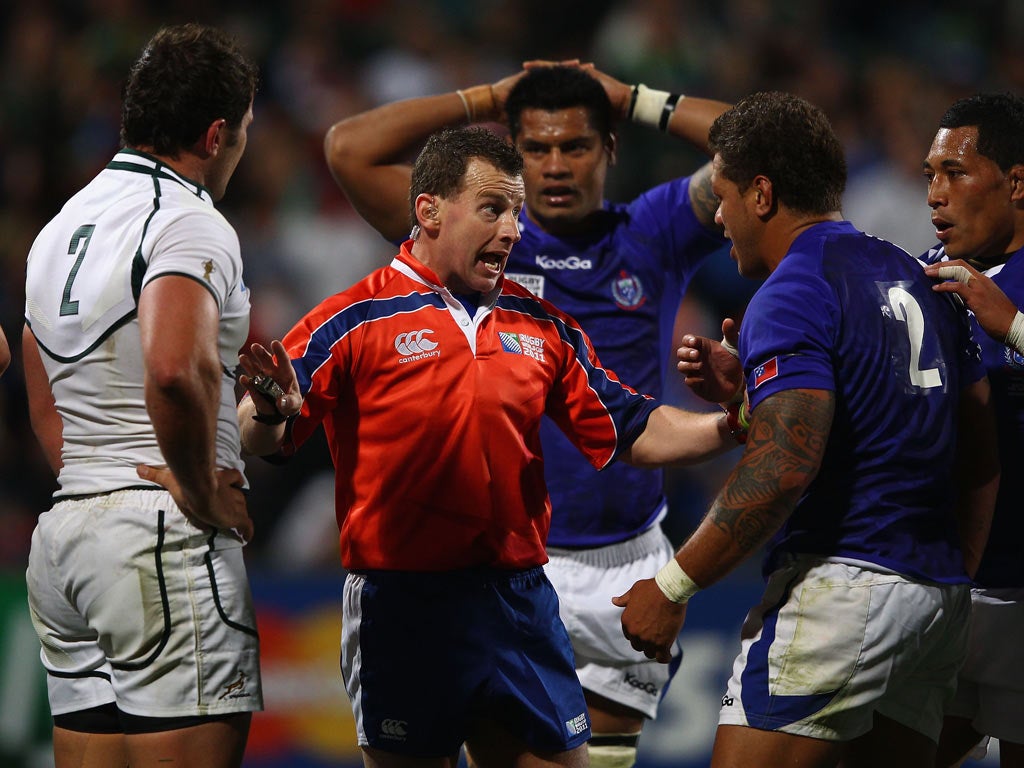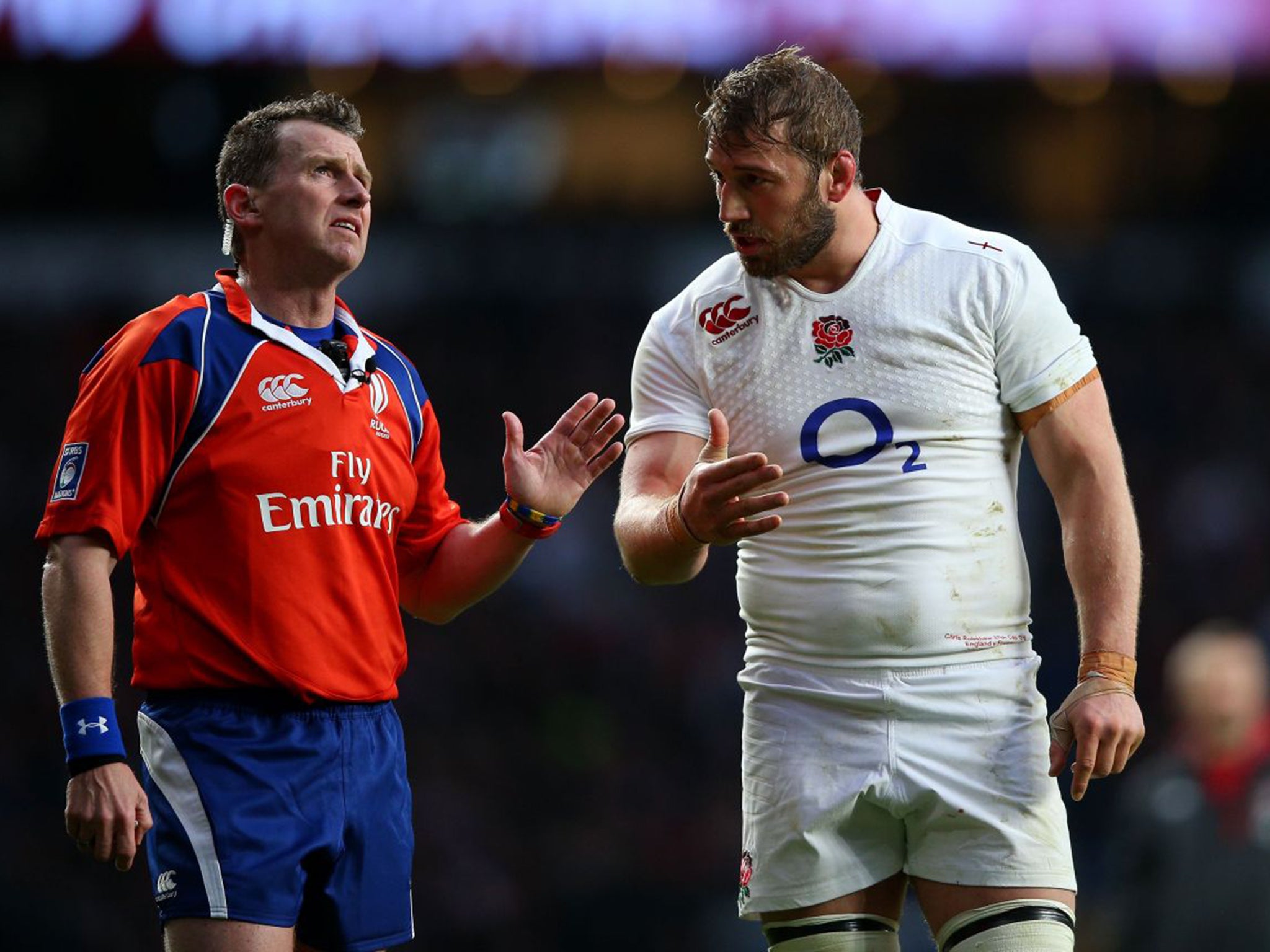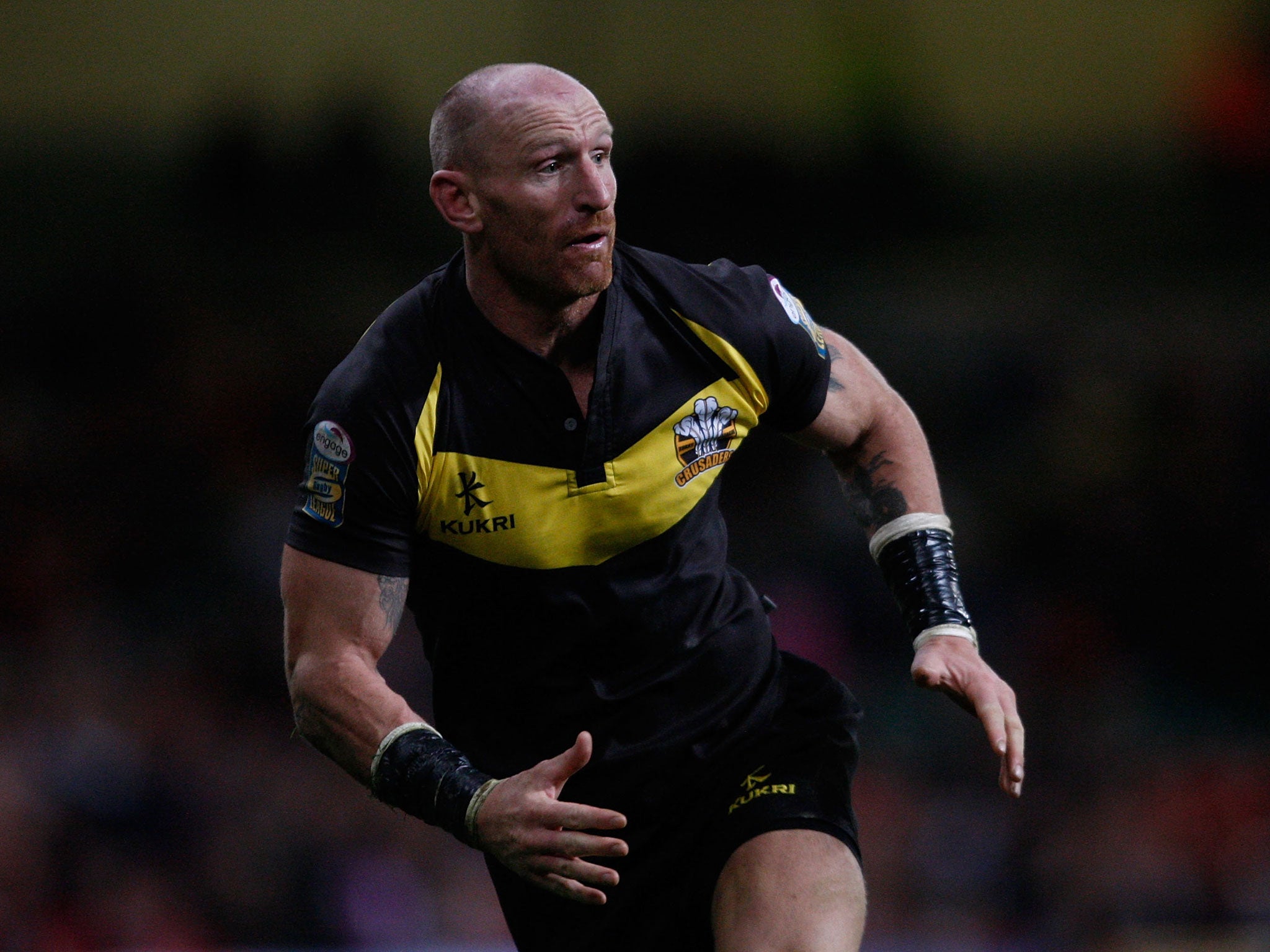Being a gay rugby referee has been tough, but coming out was like being born again
Even though I've received abuse since going public, it's the bullies who should be afraid

As a referee, I’m used to dealing with anything that gets thrown at me. If I can’t deal with the flak and abuse, then I wouldn’t be able to do this job. But as a gay man, I’ve unfortunately had to experience homophobic abuse during my career.
The latest incident came during the Six Nations finale between England and France a couple of weeks ago, where I was targeted on Twitter because of my sexuality. I’m thick-skinned, but things like this still get you down. However, if you’re gay and want to go into sport, it’s the bullies who should be afraid, not you.
I first started refereeing rugby matches when I was in school. I played as a full-back, but after missing a crucial, match-winning conversion, I was told by a teacher to consider becoming a referee. He was half-joking, but I thought, ‘Why not?’ Since then, I’ve had the chance to oversee some of the biggest rugby games going. However, it hasn’t been an easy journey.

When I became a referee, it became clear that there was nobody in the sport who was gay. The rugby world is very heterosexual and masculine, and this made things difficult. Although that’s not to say that the sport is openly homophobic. It was just never an environment where I felt like I could be myself.
I was 18 when I started realising something was different about me. In school I had girlfriends; when I was in my early twenties I had a girlfriend for a year. But I always knew something wasn’t right. I thought, "I will make myself fall in love with this girl", but that never happened and never would. Eventually I thought, "I can’t do this anymore."
In 1996, I tried to take my own life. I was 26 years old. A police helicopter had to be sent out to look for me. I had overdosed, and if they hadn’t found me when they did, then it would have been too late.
For the next nine years I tried to hide it away and never told anyone why I had tried to take my own life. But again it was too much. I wasn’t able to carry on with my refereeing because I wasn’t happy with who I was.
It got to the point where I thought: do I carry on with my life, or do I try and hide it and continue with refereeing? Or do I come out and risk my career? There was no one who was openly gay in the world of rugby then.
In 2005, I told my mum and then my friends. Two years later, I discussed it with the Press. I was so worried but I actually got a lot of support, especially from the players and the Welsh Rugby Union.
It’s impossible to try and describe how this felt. It was great to realise it made no difference to your family and friends and the people in rugby. It was like being born again.
Rugby players may seem very macho but I’ve had no problem with them at all. Some are curious and ask questions about me and my partner and some players who I know quite well will joke around with me.
I remember refereeing the Ospreys once, and their captain Ryan Jones was in the changing rooms. I walked in and he said, "Hang on, Nigel, let me put some clothes on" and I said "It makes no difference to me, Jughead [his nickname], you’re too ugly anyway". He laughed, I laughed, and all the other players laughed.

We shouldn’t lose our sense of humour and our ability to laugh at ourselves sometimes. If we get to the stage where people are scared of shouting a bit of banter from the terraces, then sport and society has found itself in a sad place.
However, people have to see that some things are unacceptable. Discrimination of any kind has no place in our sport or society. I have been accepted by 99 per cent of people in rugby, but there will always be that one per cent. They need to know that they’re completely wrong and sometimes all this takes is for someone to go, ‘hang on, you can’t do that.’
At first I didn’t see the abuse that was directed at me during the England v France match, but people reported it to me. I could have got the police involved but instead I decided to meet my abuser. He was only 18 years old. What would be the point in ruining his life? He apologised online and in person. The most important thing is he realised what he had done, and the people who reported him helped him do that.
There are always going to be a small number of bullies out there. They’re in the minority, yet they have a huge impact on people’s lives, and they shouldn’t. What people need to know is that they shouldn’t be afraid.
So if I could speak to anyone in the same position I was when I was younger, I’d say, "Trust me, everything will be OK. There might be a friend or family member who won’t accept it, but things will be OK as long as you have some people around you who support you."